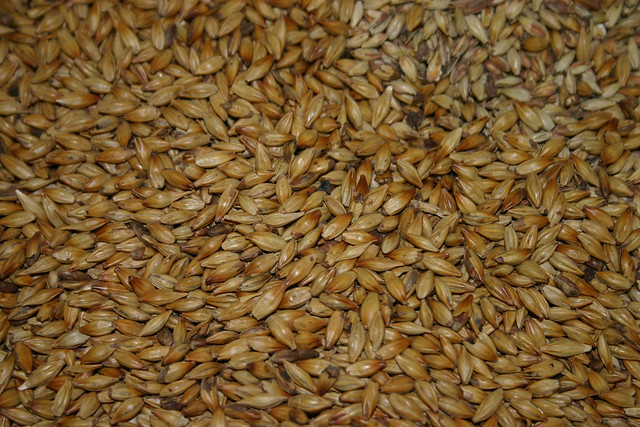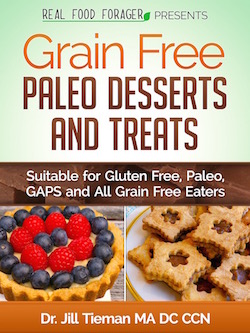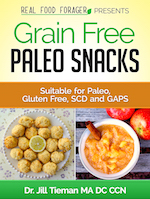
This week’s Sunday New York Times magazine section was the “Food and Drink” issue. I love those issues! There is so much current thinking about food to digest! I just curled up on my couch and tucked in. Many familiar writers were featured including the esteemed (or notorious) Michael Pollan. I do agree with him on some things, but not what he said about gluten-free diets.
The question posed to him was, what do you think of gluten-free diets? His answer was,
They are very important if you have celiac disease or can’t tolerate gluten. But it’s hard to believe that the number of people suffering from these conditions has grown as fast as this product category. Gluten has become the bad nutrient of the moment, the evil twin of Omega 3 fatty acids. Could it really be that bread, a staple of Western civilization for 6,000 years is suddenly making millions of us sick? I’m dubious.
There are “fads” in natural health as there are in medicine. There are claims that a nutrient is suddenly great for certain conditions. For instance St. John’s wort was the poster child for mild depression a few years ago. Then Sam-e took over. At one point the diagnosis for chronic fatigue syndrome became very popular. Now it is called IBS/fibromyalgia. Currently the vitamin of the moment is vitamin D (or maybe I should say omega 3’s which Pollan has pointed out to be the good twin) — it is a cure for all things and a substance many people seem to be deficient in.
Sometimes it appears that these trends in health care are fabricated by the industry supplying the cure, as Mr. Pollan implies with his term product category. After all, celiac disease is one of the few diseases that conventional medicine actually recommends a change of diet as the mainstay for management of the condition. Food manufacturers are jumping on the gluten-free bandwagon and suddenly there are tons of gluten-free packaged goods available. It does seem suspect.
But what I really take issue with is Mr. Pollan challenging that bread can suddenly be making so many people ill. Indeed, it has been a staple for over 6,000 years — actually grains have been cultivated for 10,000 years. Before that we were hunter/gatherers for eons. Our digestive systems evolved to digest fats, meats and wild flora. The switch to a grain based diet is very recent in evolutionary terms and our digestion has not caught up.
Additionally, the grains we eat today are very different from the grains of our ancestors. Modern grains have been hybridized (some genetically modified and still not labeled as such) to the extend that genetically they are quite different than wheat grains from 200 years ago. They also have more gluten than they did years ago.
Furthermore, gluten has undergone a new process called deamination. Deamination is used in the food processing industry to render the gluten more water soluble so that it may be added to many foods easily without changing the food’s qualities.
These isolates are used as food emulsifiers, gelling agents, stretchablility agents in meat products, sauces and soups and as clarifying agents in red wine. Clearly, it is pervasive in the packaged food supply. Sadly it is even present in protein products like meat.
The immune response to this deamidated gliadin is much greater than to regular gliadin. A double blind, placebo controlled food challenge study in 2003 concluded that these processes used for gluten deamidation generate new allergenic epitopes.
Research show that this extensive use of deamidated wheat isolates (gliadin) may be a major cause of hidden food allergies. Can this be contributing to health problems today?
Studies show that this deamidation of gliadin peptides produces a greater activation of T cells – a greater immune response to it. This is not the wheat that our recent ancestors ate. This is a manufactured food product that has recently been introduced to the food supply and that is clearly causing exagerrated immune reactions in certain people.
Add all these problems together with the fact that the commercial grains are not properly prepared – they should be soaked and/or sprouted to remove antinutrients and phytic acid – to improve digestibility and nutrient absorption. Additionally, most grain products have many others questionable additives that may affect one’s health.
When people stop eating gluten and grain products many experience a great reduction in symptoms and a tremendous improvement in their health. When the diagnosis is indeed celiac, the elimination diet is recommended. However gluten intolerance is also widespread but not measurable with conventional tests so it is ignored.
These are the people who live their lives in poor health, without the answers they need. Nutritionists and integrative doctors have been using alternative lab testing that is reliable and can help these people find out if they are gluten intolerant. There is research that shows that gluten intolerance is indeed a condition.
Even easier, just go on a grain elimination diet for a few weeks to see how things improve. Join me in my 28 day Grain-Free Challenge. It may change your life! Mr. Pollan notwithstanding.












